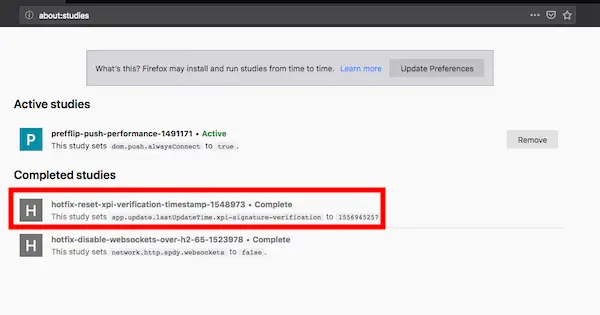

The update should then automatically download, and will be applied when you restart Firefox. To update your Firefox version on Windows or MacOS, click on the menu in the top right, then select "Help" followed by "About Firefox". This was all the information that was available as of May 8, 19:28 EDT. The expectation is that they will update their blog post when more information is available. The plan is that it will be a user-installable extension. The update replaces the studies, which means if you only enabled "studies" to get this fix, you can disable them again once you update to the current version of Firefox.įor anyone who doesn't choose to update to the current version of Firefox or Firefox ESR, Mozilla plans to release an update that will work with Firefox versions 52 through 65. Mozilla has released Firefox 66.0.5 for desktop and Android and 60.6.3 ESR, "which include the permanent fix for re-enabling add-ons that were disabled starting on May 3rd." It is recommended that you update Firefox to the latest version. Solution 0: Update Firefox to 66.0.5+ or 60.6.3+ ESR The issue is being tracked in Bugzilla 1548973 and on Mozilla's blog. This causes Firefox to consider add-ons signed with that certificate to be untrusted. An intermediate signing certificate, used by Mozilla to sign add-ons, has expired.


 0 kommentar(er)
0 kommentar(er)
